Ever found yourself glued to a TV show, utterly captivated by its characters and storylines, only to have your world (or at least your weekly viewing schedule) rocked by the news that a beloved star is leaving? It’s a feeling many of us know all too well! Whether it’s a sudden departure, a long-anticipated farewell, or a dramatic firing, when a key actor steps away from a hit series, it sends shockwaves through the fandom and leaves showrunners scrambling to figure out what comes next.
These pivotal moments can define a show’s legacy, sometimes for the better, sometimes for the worse. How do you replace an irreplaceable lead? Can a series truly thrive after its central figure has moved on? The answers are as varied and fascinating as the stories themselves. From intense contract disputes to the pull of a burgeoning film career, and from personal health battles to unexpected controversies, the reasons behind these exits are often far more complex than a simple casting change.
So, buckle up, TV fanatics, because we’re taking a deep dive into some of the most memorable and impactful departures in television history! We’re not just looking at *who* left, but *why* they decided to walk away (or were shown the door!), how their characters were written out, and the surprising ways their shows managed to carry on—or, in some cases, struggled to stay afloat. Get ready to revisit some iconic moments and uncover the backstage drama that kept us talking long after the credits rolled.
1. Ellen Pompeo: The Heart of ‘Grey’s Anatomy’ Steps Back
For nearly two decades, Ellen Pompeo was the undisputed heart and soul of “Grey’s Anatomy,” the longest-running American medical TV drama of all time. Since its premiere episode in 2005, Pompeo has served as the main protagonist and narrator, Meredith Grey, a role that not only propelled her to global fame but also solidified her status as one of the highest-paid TV performers. Her dedication to the series also saw her take on a producer role, shaping the very fabric of the show she led for so long.
But even the most enduring runs must eventually evolve. In 2023, after an incredible 19 seasons, Pompeo decided it was time to step back from her demanding role. Her primary motivations were incredibly relatable: she wanted to spend more precious time with her family and explore other exciting projects, including a new Hulu series. It’s a move that many long-time fans understood, recognizing the immense commitment a weekly drama requires.
While Meredith Grey might not be gracing the halls of Grey Sloan Memorial Hospital as frequently, Pompeo’s connection to “Grey’s Anatomy” isn’t completely severed. She continues to produce the series and, thankfully for our ears, provides the familiar voiceover narration that has bookended nearly every episode. Fans can also anticipate occasional appearances in future episodes, ensuring that Meredith’s presence will still be felt. This strategic shift, coupled with the introduction of a new batch of interns, looks to inject “Grey’s” with fresh possibilities, proving that even after nearly two decades, there’s always room for new stories.

2. Anna Faris: A ‘Mom’ Says Goodbye
“Mom” charmed audiences with its witty humor and the endearing, often chaotic, misadventures of a dysfunctional family. A significant part of the sitcom’s immense popularity and high ratings during its run was undoubtedly Anna Faris’s starring turn as Christy Plunkett, a lovable, somewhat childlike single mother and recovering alcoholic. Her comedic timing and dramatic depth made Christy a character viewers eagerly rooted for, season after season.
After seven successful seasons, the news broke in 2020 that Faris was deciding to leave the show to pursue other projects. This departure was, reportedly, quite “sudden and unwelcome” for the network, leaving fans and the production team surprised. It’s a testament to her impact that her absence was immediately felt, even as the show prepared for its next chapter.
The eighth and final season of “Mom” pivoted its focus, centering more heavily on Christy’s mother, played by the incredibly talented Allison Janney. However, Faris did not return for any episodes of that final season, leaving a noticeable void. While the show ended its run, Faris has certainly kept busy, currently starring in two podcasts, “The Peepkins” and “Anna Faris is Unqualified,” demonstrating her continued embrace of new and different creative endeavors.
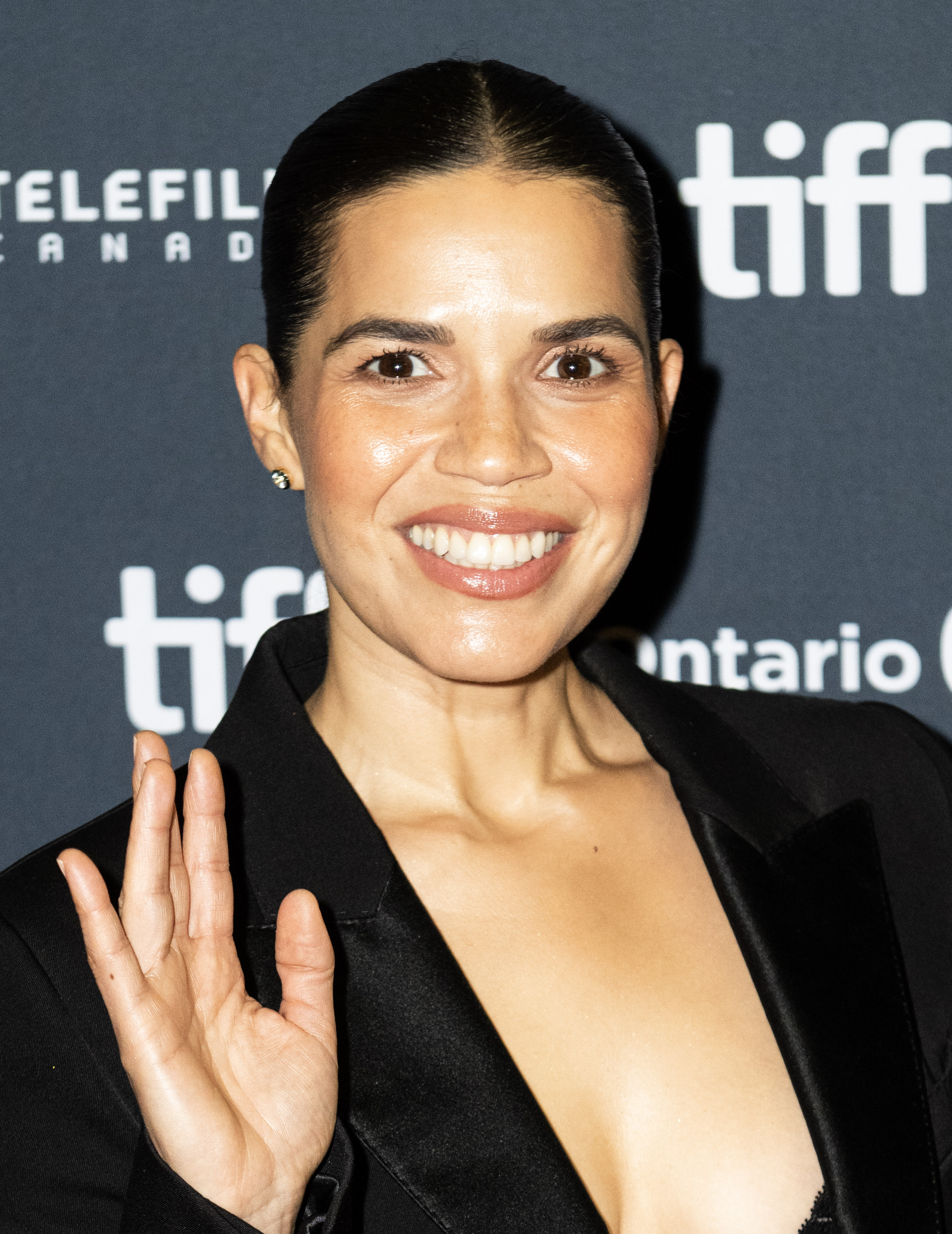
3. America Ferrera: The ‘Superstore’ Leader Moves On
“Superstore” offered a hilarious and often poignant look into the lives of employees at a fictional big-box store, and America Ferrera was the undeniable anchor of its ensemble cast. Her character, Amy Sosa, quickly became a fan favorite, especially through her charming on-again-off-again romance with Ben Feldman’s character, which provided one of the main plot lines for five seasons. Ferrera’s ability to balance comedy with genuine heart made her an integral part of the show’s success.
In February 2020, Ferrera announced her intention to leave the series, citing a desire to work on new projects and, importantly, to spend more time with her young family. However, the timing was complicated by the global COVID-19 pandemic, which delayed the filming of season five. This unexpected turn of events meant her character’s exit storyline gracefully spilled over into the first few episodes of Season 6.
Amy Sosa’s departure saw her character leave the Cloud 9 store to take a corporate job, a fitting career progression for the ambitious manager. While Ferrera wished for the show to “continued on and on and on,” “Superstore” wasn’t renewed for another season after her departure, though she did return for a brief but memorable appearance in the series finale. Post-“Superstore,” Ferrera has continued her impressive career, currently appearing in the blockbuster film “Barbie,” proving her talent extends far beyond the aisles of Cloud 9.
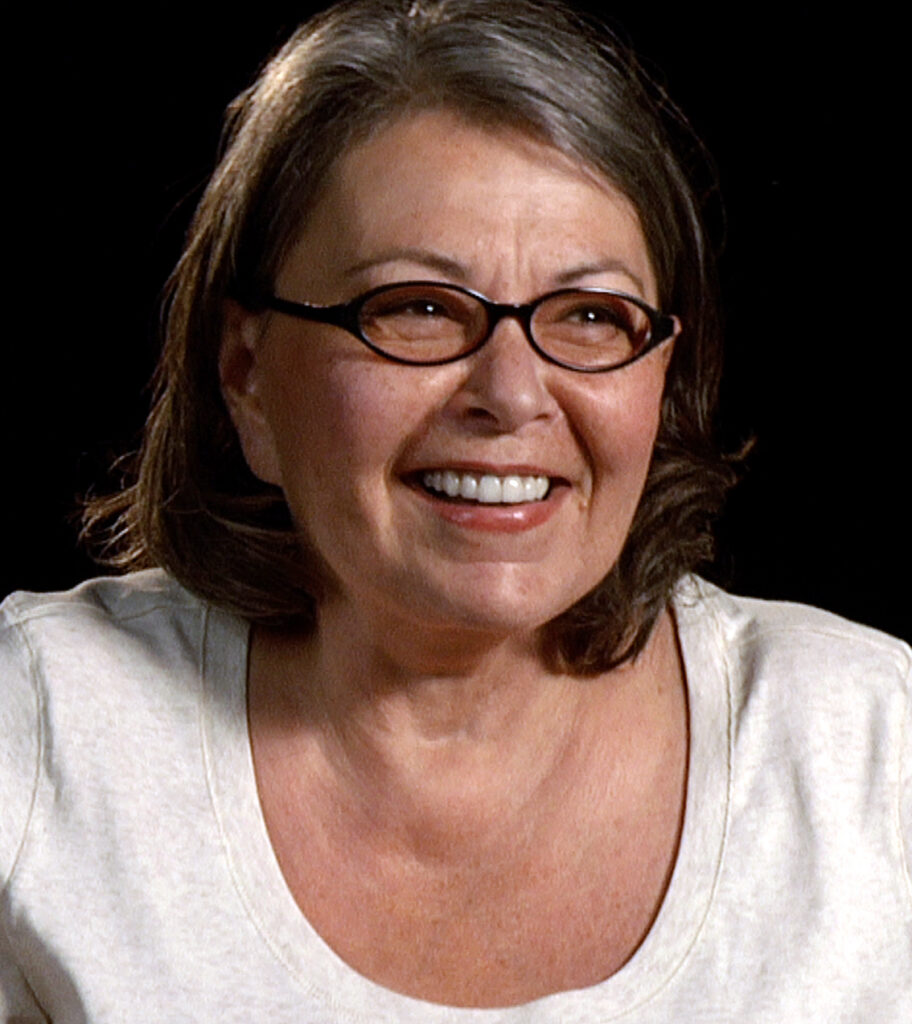
4. Roseanne Barr: A Controversial Exit from ‘Roseanne’
“Roseanne” was an absolute television powerhouse, reigning as one of the top-rated sitcoms from 1989-1997. Two decades later, its 2018 revival was met with such overwhelming enthusiasm that an 11th season was ordered almost immediately. The show’s return was a huge cultural moment, largely thanks to Roseanne Barr’s distinctive, no-holds-barred portrayal of the matriarch.
However, Barr, who had famously “courted controversy in the past,” ignited a firestorm when she responded to a Twitter thread with a racist remark about an advisor to President Obama. Despite her claim that the statement was intended to be political and not racial, the backlash was swift and severe. ABC Entertainment President Channing Dungey publicly condemned the post as “abhorrent, repugnant, and inconsistent with our values,” leading to the immediate cancellation of “Roseanne.”
Yet, the story didn’t end there for the rest of the cast. The series was too popular to simply disappear, so it was ingeniously retooled as “The Conners.” Barr’s character was tragically killed off due to an opioid overdose, allowing the rest of the beloved ensemble to continue the story, now centered on her daughter Darlene. “The Conners” has not only survived but thrived, about to enter its sixth season, while Barr herself continues to spark controversy during interviews and has a comedy special on Fox Nation.
Read more about: The Dark Underbelly of Stardom: 14 Celebrities We Worshiped Who Are Now Tarnished

5. Kevin Spacey: The Downfall of ‘House of Cards’ Leader
Kevin Spacey arrived on “House of Cards” as an already formidable talent, a two-time Oscar winner and a “well-respected actor.” His portrayal of the ruthlessly power-hungry politician Frank Underwood in the acclaimed Netflix series was nothing short of captivating. In 2013, he made history by becoming the first actor to earn an Emmy nomination for Best Drama Actor for a series from a streaming service, cementing his status as a pioneer in the burgeoning streaming landscape.
However, after starring in five acclaimed seasons, Spacey’s career came to a shocking halt. He was abruptly fired by Netflix due to multiple, severe allegations of sexual misconduct. This unprecedented situation threw the production of the sixth season, which had already begun filming, into disarray. The entire season had to be completely rewritten, a monumental task for any creative team.
In the show, Frank Underwood’s character was killed off, and his onscreen wife, Claire Underwood, played brilliantly by Robin Wright, stepped into the lead role, guiding the series to its sixth-season finale. While Spacey has consistently denied all allegations, his career has never recovered from the scandal, and he continues to face charges, marking a profound and tragic fall from grace for a once-celebrated actor.
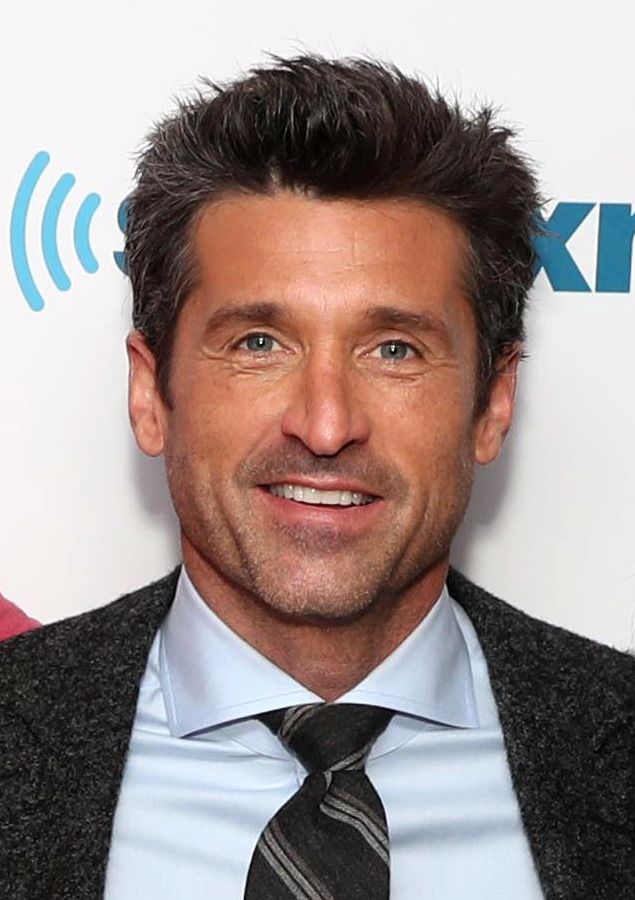
6. Patrick Dempsey: Saying Goodbye to McDreamy on ‘Grey’s Anatomy’
The romance between Meredith Grey and Derek Shepherd, affectionately known as McDreamy, was arguably one of the most beloved and central storylines on “Grey’s Anatomy” for years. Fans were utterly devastated when Patrick Dempsey, the charismatic actor behind Dr. Derek Shepherd, opted to leave the show during its 11th season. His departure marked the end of an era for many viewers who had invested in their epic love story.
Dempsey’s decision stemmed from a very human desire: he had grown weary of the incredibly long hours that a weekly series demands, and the significant time it took away from his family. It’s a common refrain for actors in long-running dramas, highlighting the personal sacrifices made for professional success. Sometimes, even playing a beloved character becomes too taxing when balancing life outside the screen.
His character met a tragic end, killed in a car accident, a plot twist that left audiences reeling. Season 12 bravely tackled the profound effects of his death on the remaining characters, particularly Meredith. However, in a heartwarming surprise for fans, Dempsey returned in a dream sequence in season 17, offering a moment of poignant reunion. Since his initial departure, Dempsey has continued to work on TV and film, and has also passionately pursued his love of auto racing, founding Dempsey Racing in 2006 and competing in numerous events.

7. Nina Dobrev: The ‘Vampire Diaries’ Love Triangle Shifts
“The Vampire Diaries” was instrumental in establishing The CW network as a hub for captivating supernatural dramas, largely thanks to its central love triangle involving Nina Dobrev’s character, Elena Gilbert, and two alluring vampire brothers. Elena’s journey and her complicated romantic entanglements kept audiences hooked, forming the very core of the series’ appeal and narrative drive.
At the end of season six, Dobrev made the significant choice to depart the show. To explain her absence while leaving the door open, her character was magically put into a deep sleep, effectively bringing an end to the series’ foundational love triangle. This creative decision meant that the vampire brothers, Damon and Stefan, were then made the central figures, allowing the show to explore new dynamics.
While Dobrev moved onto other projects after her initial departure, her character remained an integral part of the show’s history and mythology. Much to the delight of fans, she returned for the series finale, providing a satisfying sense of closure to Elena’s story and the show as a whole. Since her time on the hit CW series, Dobrev has continued to pursue diverse roles, currently starring in the Netflix film “The Out-Laws,” showcasing her versatility beyond Mystic Falls.
Diving even deeper, let’s unpack the stories of eight more impactful TV departures. These exits span a fascinating range of controversies, health challenges, and creative differences, each revealing how these moments dramatically reshaped popular series and left an indelible mark on television history. From beloved managers seeking new cinematic adventures to legendary actors battling serious illness, these tales remind us that behind every character, there’s a human story of ambition, struggle, and change.
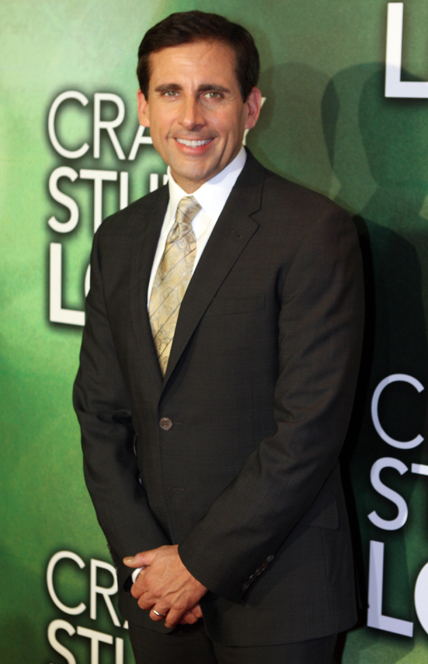
8. Steve Carell: The Office (2011)
It’s hard to imagine “The Office” without Michael Scott, the endearing, often cringeworthy, but ultimately lovable regional manager of Dunder Mifflin. Steve Carell brought a unique blend of humor and heart to the role, winning a Golden Globe for his memorable performance. During his tenure, Carell’s film career began to soar, with successful turns in movies that showcased his versatile comedic and dramatic talents.
As the seventh season concluded, Carell’s initial contract expired, and he decided it was time to move on to other ventures. His character, Michael Scott, was given a fittingly sweet send-off, moving to Colorado to be with his fiancée, Holly Flax, to help care for her parents. It was a bittersweet moment for fans, but one that felt earned for a character who had grown so much.
Interestingly, behind the scenes, there was a feeling that NBC might have ‘dropped the ball’ regarding his potential return. Editor and director Claire Scanlon later shared that Steve himself would have been open to coming back, but it seemed the network didn’t even try to renegotiate his contract. This revelation makes his departure even more poignant, suggesting that perhaps Michael Scott’s story could have had a different trajectory.
Despite Michael Scott’s exit, “The Office” bravely continued for two more seasons, navigating the challenges of replacing its central figure. Carell, ever the professional, made a surprise and heartwarming return for the series finale, delighting fans with a brief appearance at Dwight Schrute’s wedding. His career has flourished in the decade since, including an Oscar-nominated role in “Foxcatcher” and an Emmy-nominated role in “The Morning Show,” proving that sometimes, leaving a beloved show can open doors to even greater success.

9. Charlie Sheen: Two and a Half Men (2011)
Charlie Sheen, with his signature bad-boy charm, was the undeniable magnet that made “Two and a Half Men” one of the most popular sitcoms of the early 2000s. His portrayal of Charlie Harper, a hedonistic jingle writer, resonated with audiences, solidifying his status as a TV superstar. The show’s success hinged significantly on his charismatic performance and his comedic timing alongside Jon Cryer and Angus T. Jones.
However, in one of television’s most infamous and dramatic departures, Sheen’s personal struggles began to spill over into his professional life. Production on the series was halted in early 2011 while he entered a rehab program, but the situation quickly escalated. Sheen began making highly offensive public comments about the show’s creator, Chuck Lorre, and also made claims that he was owed a significant raise, igniting a media firestorm.
The network and studio had no choice but to take decisive action. Sheen was swiftly fired, and his character was unceremoniously killed off-screen, presumably in a tragic accident involving a subway train. This unprecedented move left showrunners scrambling, but they ingeniously brought on Ashton Kutcher as a completely new character, Walden Schmidt, who bought Charlie Harper’s house.
Remarkably, the series found a way to not only survive but thrive for another four seasons with its retooled cast. Despite initial hopes from fans that Sheen would return for the finale, he did not, though his character remained the central focus of that episode. In the year following his dismissal, Sheen starred in the short-lived sitcom “Anger Management” and has since made sporadic appearances on film and TV, a stark contrast to his earlier reign.

10. Topher Grace: That ’70s Show (2005)
“That ’70s Show” launched a whole generation of young actors into stardom, and Topher Grace was at the heart of it as Eric Forman, the witty and often awkward protagonist. For seven years, viewers tuned in to watch Eric navigate adolescence, friendships, and romance in the iconic basement setting. During his time on the popular sitcom, Grace also began building a budding film career, appearing in acclaimed movies like “Traffic.”
The demanding shooting schedules of a weekly TV series can be incredibly taxing, and as his film opportunities grew, Grace felt compelled to make a change. He decided to leave “That ’70s Show” at the end of its seventh season, driven by a clear ambition to pursue a full-time film career. His character, Eric, was written out by moving to Africa for a year to teach, a decision that remained a central point of discussion among the remaining characters.
Initially, there was contemplation about recasting Eric, but producers wisely introduced Josh Meyers as a new character, Randy Pearson, to fill the void. While the show only lasted one more season after Grace’s departure, he did return briefly for the emotional series finale, offering closure for fans. His connection to the series remains strong, as he is also set to reprise his role in the recent Netflix revival, “That ’90s Show.”
Grace’s decision proved to be a successful one, as his film career has indeed flourished since leaving the show. He has worked steadily in diverse roles, and currently holds a starring role on the ABC sitcom “Home Economics,” demonstrating his continued versatility and enduring appeal in both film and television. His journey exemplifies how actors sometimes need to make tough choices to grow their craft.

11. Shannen Doherty: Charmed (2001), Beverly Hills, 90210 (1994)
Shannen Doherty was no stranger to dramatic exits, having cultivated a “bad girl” reputation early in her career. Her initial departure from “Beverly Hills, 90210” in 1994 was rife with rumors of feuds with costar Jennie Garth and on-set “diva-like behavior,” including chronic lateness. She was fired at the end of the fourth season, a controversial move that cemented her image in Hollywood.
Despite this acrimonious parting, “90210” producer Aaron Spelling saw her talent and cast her in “Charmed” in 1998, where she played one of the sister witches, Prue Halliwell. The show quickly gained a cult following, with Doherty’s character being a central force. However, history seemed to repeat itself, with reports of tension and drama between her and costar Alyssa Milano leading to her departure at the end of season three.
Doherty, speaking on her exit from “Charmed,” candidly stated, “I’m 30 years old, and I don’t have time for drama in my life anymore,” implying that the on-set environment had become untenable. Ironically, she even directed her own final episode, which saw her character, Prue, tragically killed off by a demonic assassin. The show, however, ingeniously brought in Rose McGowan as a long-lost third sister, Paige Matthews, and continued successfully for another five seasons.
Since her time on “Charmed,” Doherty has continued to appear in various TV series and movies, showcasing her resilience. Beyond her acting career, she has bravely faced significant health struggles, including a breast cancer diagnosis in 2015, which returned as stage four in 2020. Her journey has also seen her make amends with former costars, even appearing in the 2019 reboot “BH90210,” highlighting a remarkable personal and professional evolution.

12. Michael J. Fox: Spin City (2000)
Michael J. Fox was already a household name, beloved for his iconic roles in “Family Ties” and the “Back to the Future” films, when “Spin City” debuted in 1996. His return to television was highly anticipated, and he quickly charmed audiences once again as the Deputy Mayor of New York City, Mike Flaherty. His comedic genius and warm screen presence were a huge draw for the new sitcom.
In 1998, Fox bravely announced his diagnosis with Parkinson’s disease, which he had been privately battling since 1991. This revelation was a moment of profound public courage. To help manage his workload as his symptoms gradually worsened, Heather Locklear was brought onto the series, allowing for some adjustment in the show’s structure to accommodate his health needs.
By 2000, his Parkinson’s symptoms had progressed to the point where he felt he could no longer continue in a demanding leading role, leading to his difficult decision to leave the show. His character was written off by moving away, with a touching homage paid to his “Family Ties” character, Alex P. Keaton. Even in his final season, Fox’s performance was outstanding, earning him an Emmy for Best Comedy Actor.
“Spin City” continued for two more seasons with Charlie Sheen joining the cast, a testament to its ensemble strength. Fox, despite officially retiring from acting in 2020 due to difficulties with speech and memory, has continued to be a powerful advocate for Parkinson’s research and awareness, co-founding The Michael J. Fox Foundation. He has also written several books and starred in the acclaimed documentary film, “Still: A Michael J. Fox Movie,” inspiring millions with his unwavering spirit.

13. David Caruso: NYPD Blue (1994)
David Caruso rocketed to fame as Detective John Kelly in the groundbreaking police drama “NYPD Blue,” which premiered in 1993. His brooding intensity and captivating performance earned him a Golden Globe award, making him one of the most talked-about new stars on television. The show’s gritty realism and Caruso’s compelling portrayal were central to its initial success and critical acclaim.
Riding high on the series’ immense popularity, Caruso made the fateful decision to demand a significant raise and request time off to pursue a film career, believing his newfound stardom could translate into Hollywood blockbuster success. However, his negotiations notoriously failed, and he famously predicted that “NYPD Blue” would falter without him at its helm, creating a palpable tension behind the scenes.
His character was abruptly written off just four episodes into the second season, with Detective Kelly resigning from the force. His onscreen partner, Dennis Franz’s Detective Andy Sipowicz, received a new partner in Jimmy Smits, allowing the show to continue its narrative. Caruso’s highly publicized departure was quickly followed by a series of film flops, and he struggled for several years to find meaningful projects, proving his prediction about the show’s failure without him was wildly off the mark.
Despite this career setback, Caruso eventually redeemed himself with another starring role in a highly successful police procedural, “CSI: Miami,” which ran from 2002 to 2012. He famously delivered his lines with dark sunglasses and dramatic pauses, becoming a new kind of iconic TV figure. After his decade-long run on “CSI: Miami,” Caruso retired from acting, leaving behind a legacy marked by both early triumph and a dramatic, albeit ultimately successful, comeback.
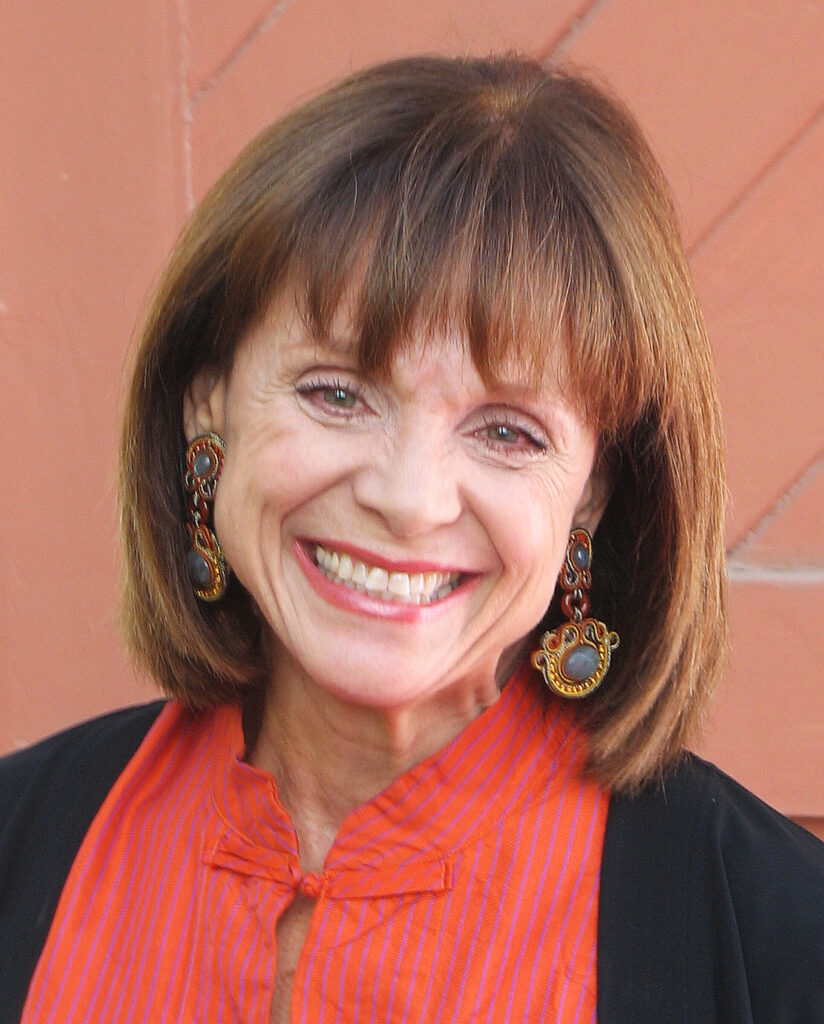
14. Valerie Harper: Valerie (1987)
Valerie Harper was already a television legend, with Emmy-winning turns on “The Mary Tyler Moore Show” and “Rhoda,” when she made a triumphant return to sitcoms with her eponymous series, “Valerie,” in 1986. The show quickly resonated with audiences, with Harper portraying a working mother navigating family life, cementing her place as a beloved comedic actress for a new generation.
When the series was renewed for its third season, Harper, a seasoned veteran of contract negotiations, sought to renegotiate her salary and secure a percentage of future syndication revenue, much as she had successfully done with her previous hit shows. However, these negotiations reached an impasse, leading to a tense standoff between the actress and the network.
As the disputes escalated and negotiations stalled, Harper famously walked out of production. In a drastic move, she was replaced by Sandy Duncan, who joined the cast as a new character, the children’s aunt. The show was subsequently retitled “Valerie’s Family” and later “The Hogan Family,” continuing for four more seasons without its original star. Harper, undeterred, sued the network and the production company, eventually winning her case against the latter.
Despite this significant hiccup, Harper’s career continued with resilience, including starring in the short-lived sitcom “City” which aired concurrently with “The Hogan Family.” She maintained a successful career on TV and stage until 2016. In 2013, she received a dire diagnosis of a rare cancer, given only three months to live, yet she courageously fought for six more years, inspiring many before her passing in 2019 at the age of 80.
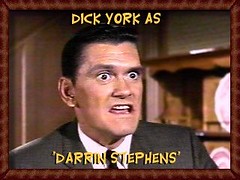
15. Dick York: Bewitched (1969)
“Bewitched” remains one of the most enchanting and beloved sitcoms of the 1960s, largely due to the magical chemistry between Elizabeth Montgomery as the “bewitching” Samantha and Dick York as her perpetually befuddled mortal husband, Darrin Stephens. For five seasons, York brought a unique charm and comedic timing to the role, perfectly balancing Samantha’s supernatural antics with Darrin’s earthly exasperation, making the series a true classic.
However, behind the scenes, York was battling a severe and hidden struggle. It was later revealed that he had suffered a debilitating back injury while filming the movie “They Came to Cordura” in 1959. This injury led to chronic pain and, tragically, a prescription drug addiction that plagued him for years, significantly impacting his ability to work consistently and comfortably on the set of “Bewitched.”
The toll on his health became undeniable, culminating in a severe collapse while filming an episode of the show. Faced with the stark reality of his physical and mental health, York made the heartbreaking decision that he could no longer continue in his role. At the beginning of season six, Dick Sargent, who bore a striking resemblance to York, abruptly took over the role, a transition that was largely unexplained at the time, leaving many fans puzzled.
In the years that followed his departure, York bravely confronted his prescription painkiller addiction, eventually quitting cold turkey in a powerful act of self-reclamation. Apart from a couple of guest spots in the 1980s, his acting career largely concluded. He dedicated much of his later life to advocating for the homeless, a testament to his compassionate spirit, before passing away in 1992 at the age of 63. His story is a poignant reminder of the hidden battles many face, even those in the spotlight.
And there you have it, TV fans! A journey through the dramatic exits that truly shook up our favorite shows. From clashes over contracts and creative visions to deeply personal battles with health and public image, these stories remind us that the world behind the camera is just as complex and captivating as the one we see on screen. Each departure, whether a sudden firing or a planned farewell, left its unique fingerprint on television history, forcing beloved series to adapt, reinvent, and sometimes, even become something entirely new. It’s a testament to the unpredictable nature of show business and the enduring power of storytelling, no matter who’s in front of the camera.


